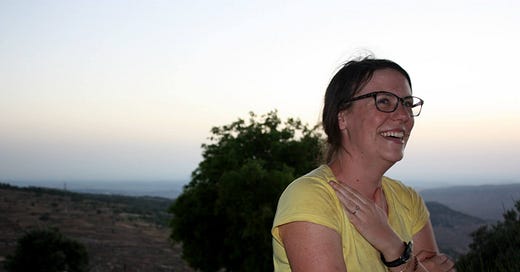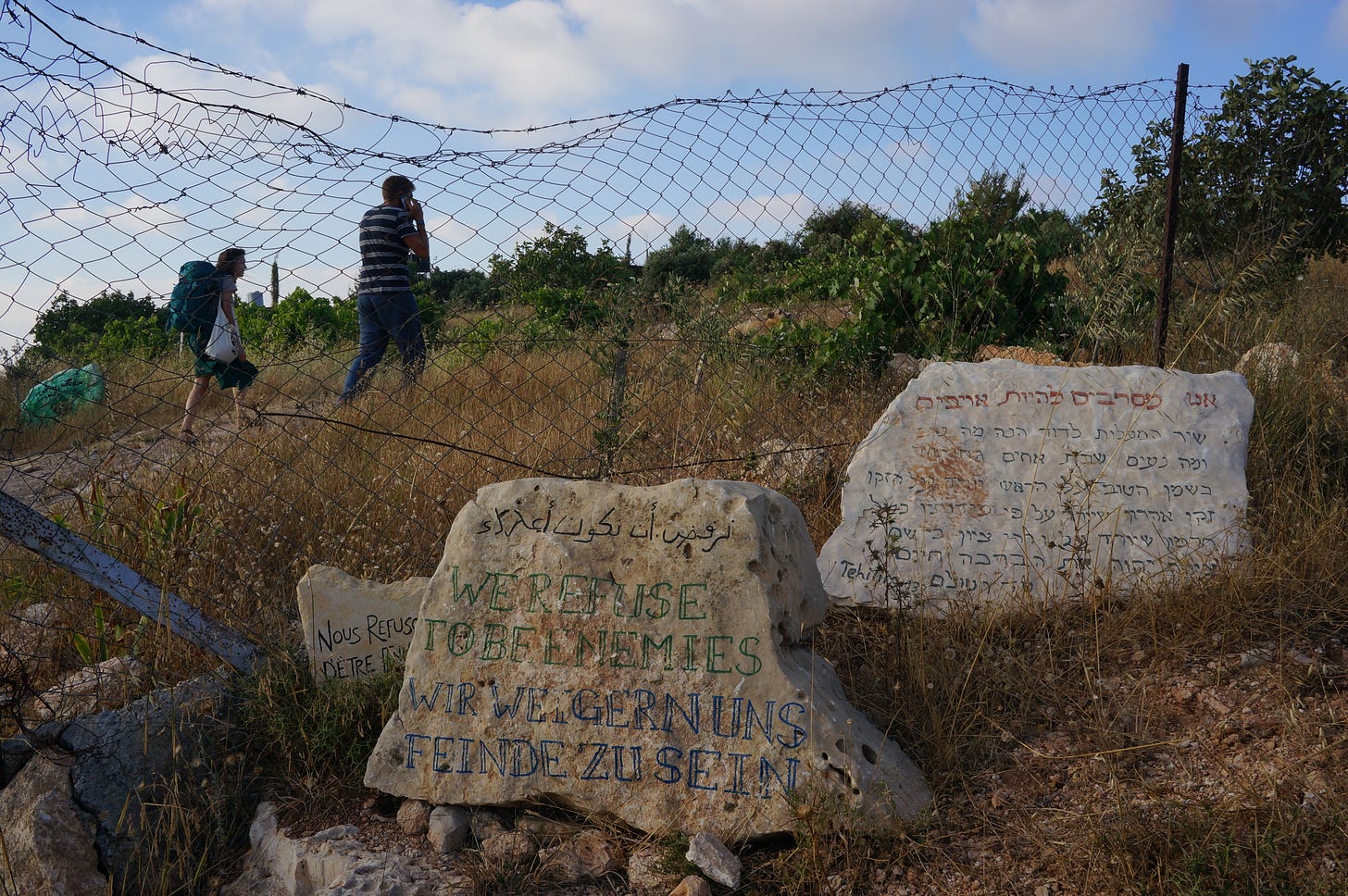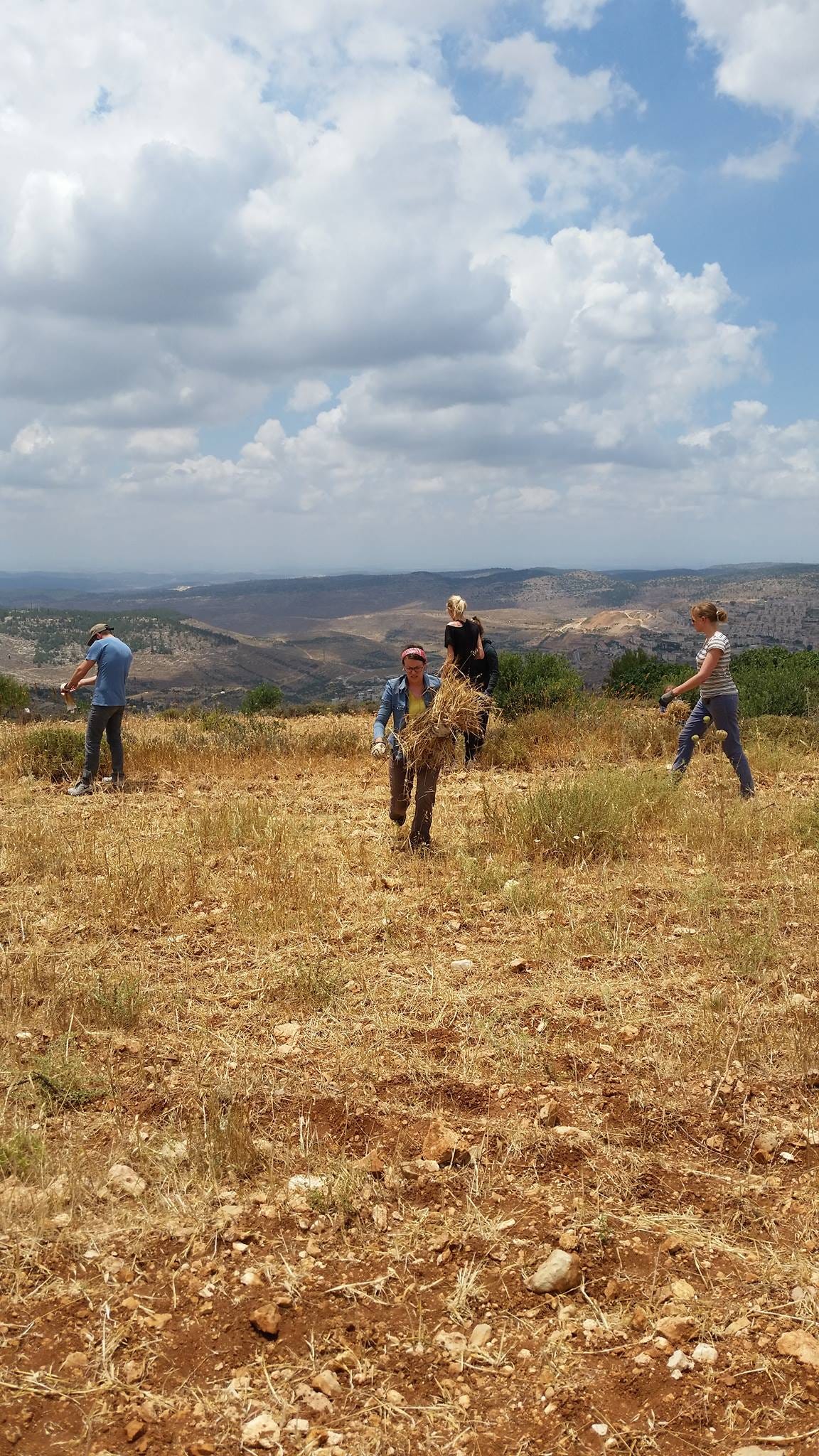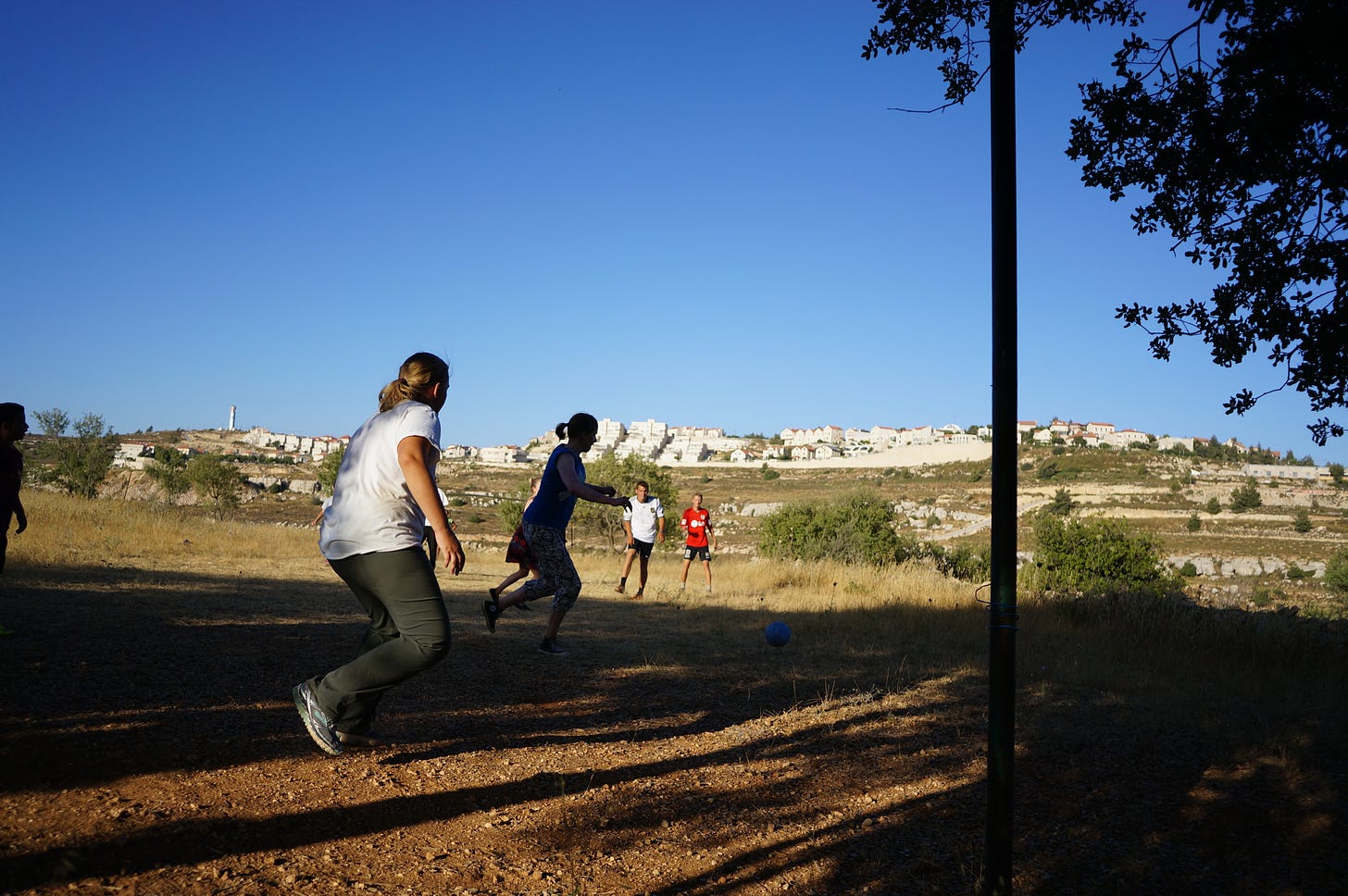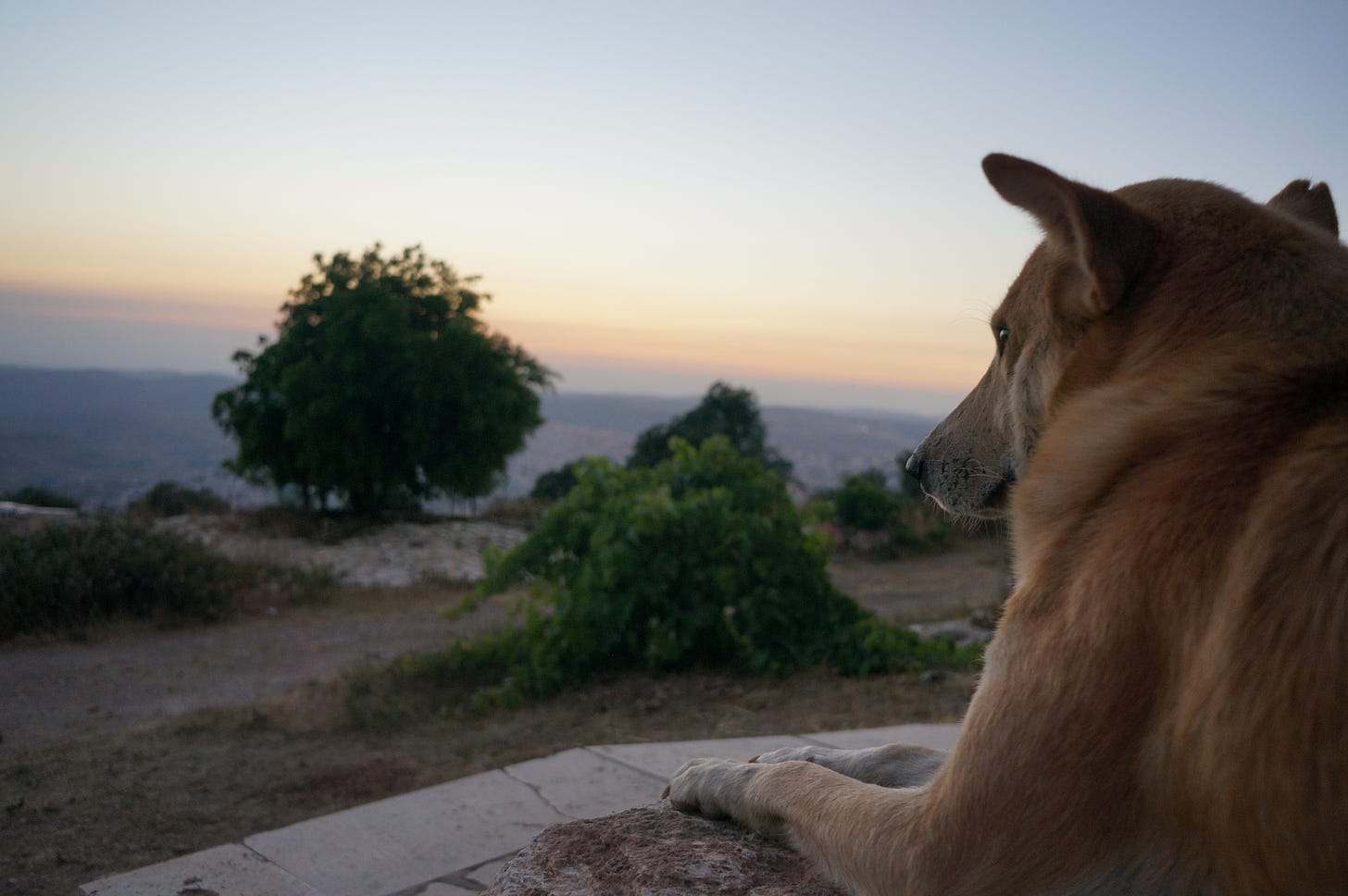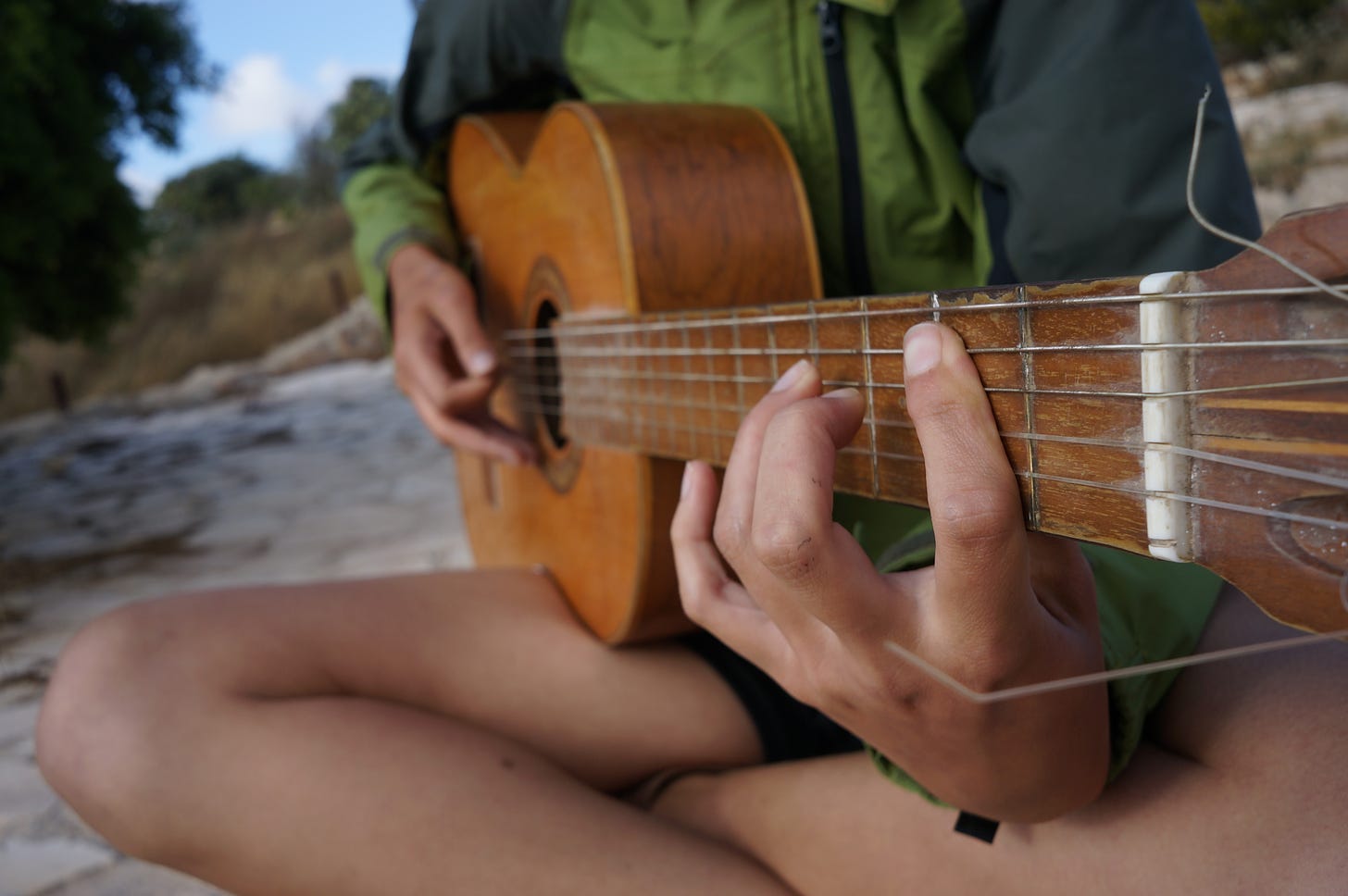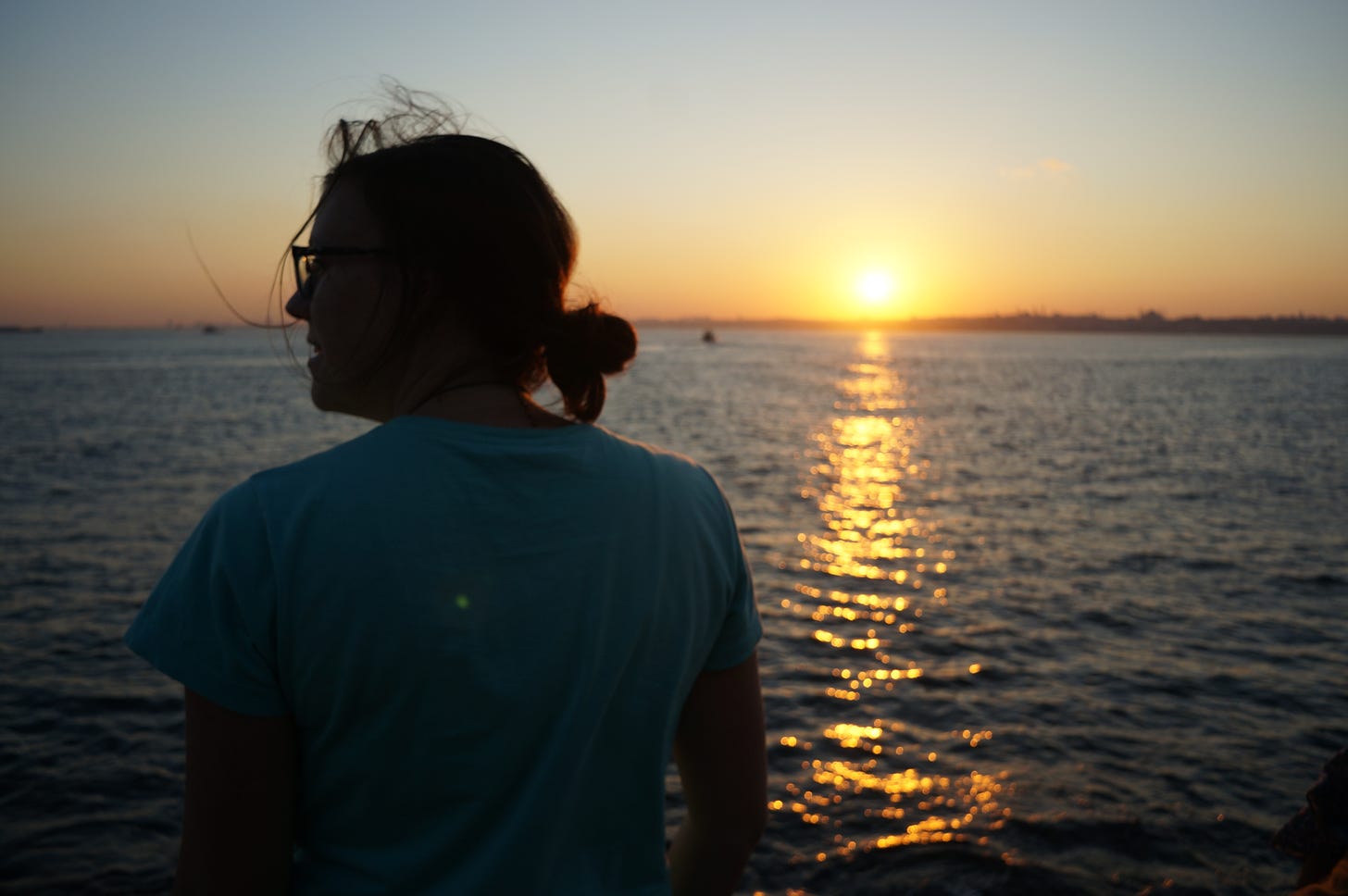Welcome back to Wandering Home. Thanks for being here.
I’m back to share a couple more stories images from my Etsy shop along with how or why I made them because I want you to know the context I make my work in and about, and I want you to see the bigger picture that influences how and why I make my art.
Here’s Part One and Part Two if you missed those art origin stories.
This time, rather than using the photo as inspiration for the stories, I’ve pulled sections out of my in-progress memoir that fit with each image location. I’ve also included extra images at the very end of the post that will further illustrate the stories. I hope you enjoy the new perspective and sneak peek!
The two images I highlight here are available for purchase in my Etsy Shop (open only through THIS FRIDAY, May 12!) My art for sale celebrates and elevates my solidarity with the greater Palestinian struggle, and my joy to make work that propels hope and change. Read on to learn about about these images, and please consider purchasing one to support me, Beirut and Beyond, and Palestinian refugees by donating toward my volunteer trip to Lebanon and Jordan next month.
You can read more about my work and volunteer trip here and here.
Let’s wander again back to the Middle East. Yallah.
“Field of Dreams”
📍Tent of Nations farm, Bethlehem, Palestine. 2015.
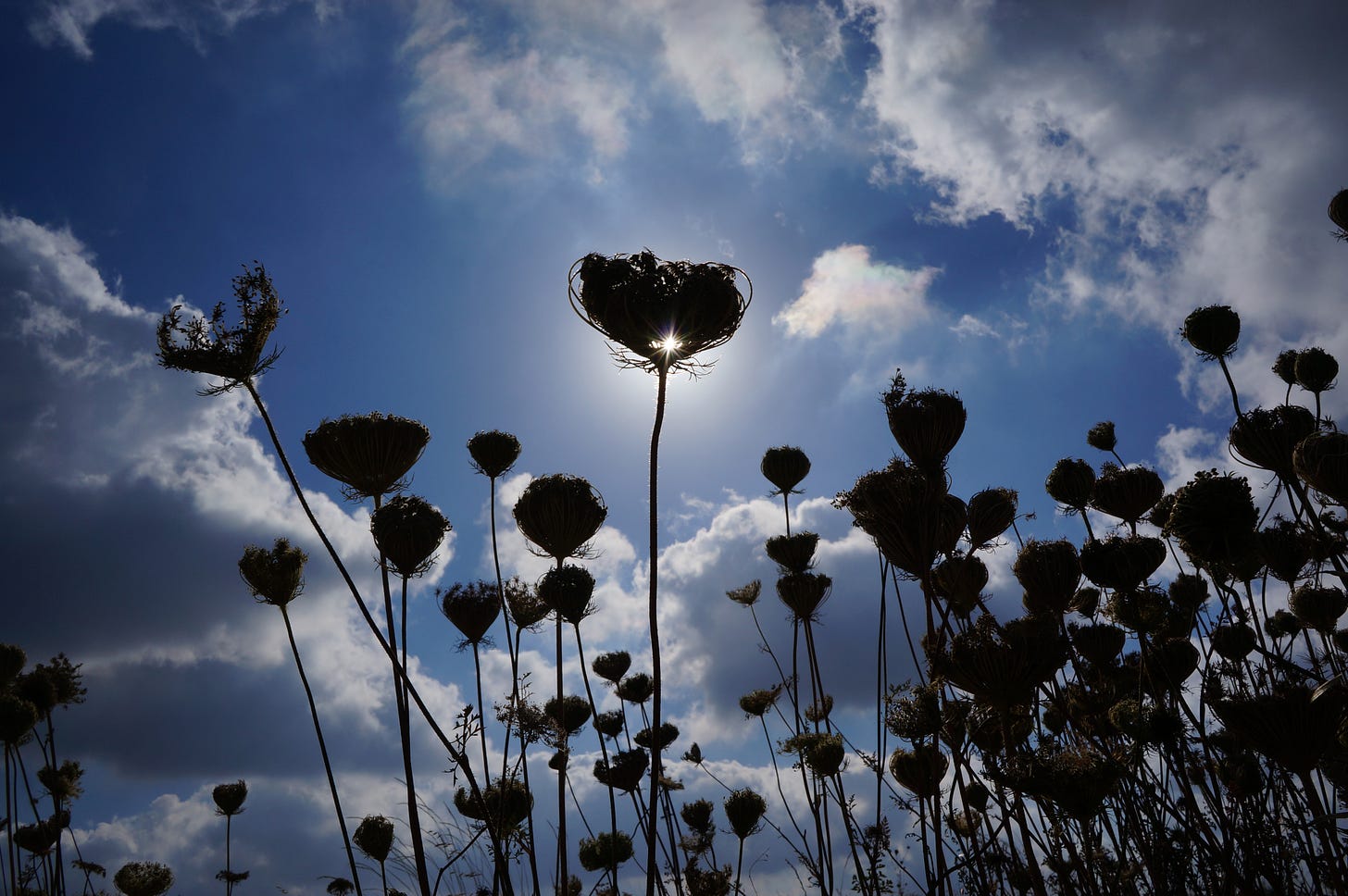
I arrive alone at immigration in Tel Aviv, Israel, and am questioned: who do you know? Where will you stay? What will you do? As it is my first visit, I say I would like to see the holy sites. As far as any touristic itinerary goes, I will be visiting the churches, the Garden, the Mounts. It feels true in part. But I already know the trip will become more like a pilgrimage to places beyond and beneath the holy sites, because I’ve been listening to Katie for years now. I easily keep the words occupation and ethnic cleansing and apartheid out of my mouth because I barely realize them yet.
It is not long after I leave the airport that I am first stopped in my tracks at a checkpoint into the occupied West Bank, into Area C, the part of the Palestinian territory under Israeli government and military rule. It recalls for me the controlled gates at the entrance of U.S. military bases where my husband works, except more militarized and humiliating for those subject to the discriminatory restriction enacted on Palestinians. These hundreds of checkpoints and roadblocks fashioned by the Israeli military on Palestinian land restrict Palestinian travel between and within their towns.
Many checkpoints are manned by heavily armed Israeli soldiers. Others are made up of gates that are locked randomly to harass the Palestinians needing to pass through them. In addition, there are hundreds of dirt or concrete roadblocks, which prevent the passage of all vehicles - family cars and ambulances alike.
Due in large part to the checkpoints and roadblocks, Palestinian movement is severely restricted. Journeys of short distances can stretch into hours when Palestinians are detained at checkpoints or forced to circumnavigate roadblocks or closed checkpoints. They can’t even use the airport I flew into.
I am let through the Israeli checkpoint because I am a white female American and traveling with no Palestinians.
The next time I am stopped in my tracks, I am watching a Christian Palestinian farmer and co-founder of Tent of Nations named Daoud Nassar plant trees and crops on his land, located in the hills southwest of Bethlehem, Palestine. It is completely surrounded by illegal Israeli settlements, road access blocked for miles in every direction, and under imminent threat of confiscation and expulsion, cut off from basic infrastructure like water and electricity – and he’s cultivating his land as a form of nonviolent protest.
At Tent of Nations, the mission is building bridges between people, and between people to the land. They bring different cultures together to develop understanding and promote respect for each other and the shared environment.
To realize this mission, they run educational projects at Daher’s Vineyard, their organic farm. They invite in visitors from all over the world, including Israeli neighbors, through the farm gate and past a boulder painted to read "WE REFUSE TO BE ENEMIES” in many languages. It is our first greeting at the farm, this Christian peace offering. Our second will be Palestinian hospitality, in the form of genuine curiosity and conversation over sage tea. This is why we’ve come: to labor for two weeks on this farm and to learn.
This farm has been in the Nassar family nearly 100 years. In addition to defending themselves peaceably from attacks by settlers and the Israeli military, Daoud’s family has been defending their land in the Israeli courts for over 30 years, attempting to fulfill the Israeli requirement to re-register it1, though they have legal paperwork proving their ownership dating back to the Ottoman period and then again during the British Mandate. This land is encircled by Israeli settlements and it’s already not hard for me to see how much it is coveted, all these restrictions enacted to pressure them flee, leave their home and land to make way for more illegal settlements.
The road to the farm has concrete barriers placed by IDF (Israeli Defense Forces) preventing vehicle traffic, so we’ve just walked the mile and a half of gravel road from the bus stop to the gate. Long term volunteers from Germany and Quebec give us a quick tour of the property. We’re shown to our girls’ quarters, an Army-style tent on a concrete slab with 10 twin metal frame beds. We choose a bunk and leave our heavy backpacks behind. We’re taken past the compost toilets and the gravity fed showers. We’re told to use the toilets properly and the showers rarely. They point out the underground water collection cisterns and rooftop solar panels, the ways the family is making do to be self-sufficient with the restrictions imposed unfairly on them. We walk by the kitchen where the chef Maher is already preparing our traditional Palestinian dinner. The scent of saffron rice and roasted chicken fill the air.
We’re shown where the tools are and where we’re to begin work in the morning, just after breakfast. There is a field which has to be cleared before it can be used for sport, but the work is purposeful knowing in August there will be a camp for kids. We work all day to plow by hand this patch of land that’s long been taken over by weeds and thorns. Then, just before dinner, we play our own game of soccer, or football, on the fresh pitch in the shadow of an illegal settlement in the occupied West Bank. To laugh and shout over goals on land under threat of unjust confiscation is to fight against oppression with connection. To clear overgrowth and plant trees when no one's sure the family will be around to see it bear fruit is to fight fear with hope. To make space for children to have fun and be seen is to fight against indignity with love. They’ll be using this field where Israeli settlers on the hill above will see kids laughing and learning on this Palestinian farm.
I begin to see the cycles of impact.
When we aren’t picking wheat or drying sage or building supports for the tomato plants in the greenhouse, we drag an old guitar all around the farm with us. Despite its missing high E string, sweet sounds and sweeter moments are made with the thing. Katie and Amber and I sneak off often alone to the cave where Daher and Daoud’s grandparents lived decades ago to play songs under the curved stone roof. There is no furniture or rugs to absorb the sound, so it echoes recklessly, making our five string guitar and even me sound like we are really something.
It’s June and the days are long, sweaty work. My cheap leather gloves are breaking down quickly from sculpting the harsh landscape. I end most days itchy with hay or absolutely caked in dirt from planting or hauling things around the farm, but I don’t care. The work here feels meaningful and hopeful. It feels sacramental.
It feels good to help, to live close to the land, even if it feels a little removed from out there with its glaring reality of apartheid. It is still felt here, although among the peaceful rolling hills and the hard labor of plucking wheat by hand, it’s possible to forget for a moment.
But not much longer than that.
“Fishermen on the Galata Bridge”
📍Istanbul, Turkey. 2015.
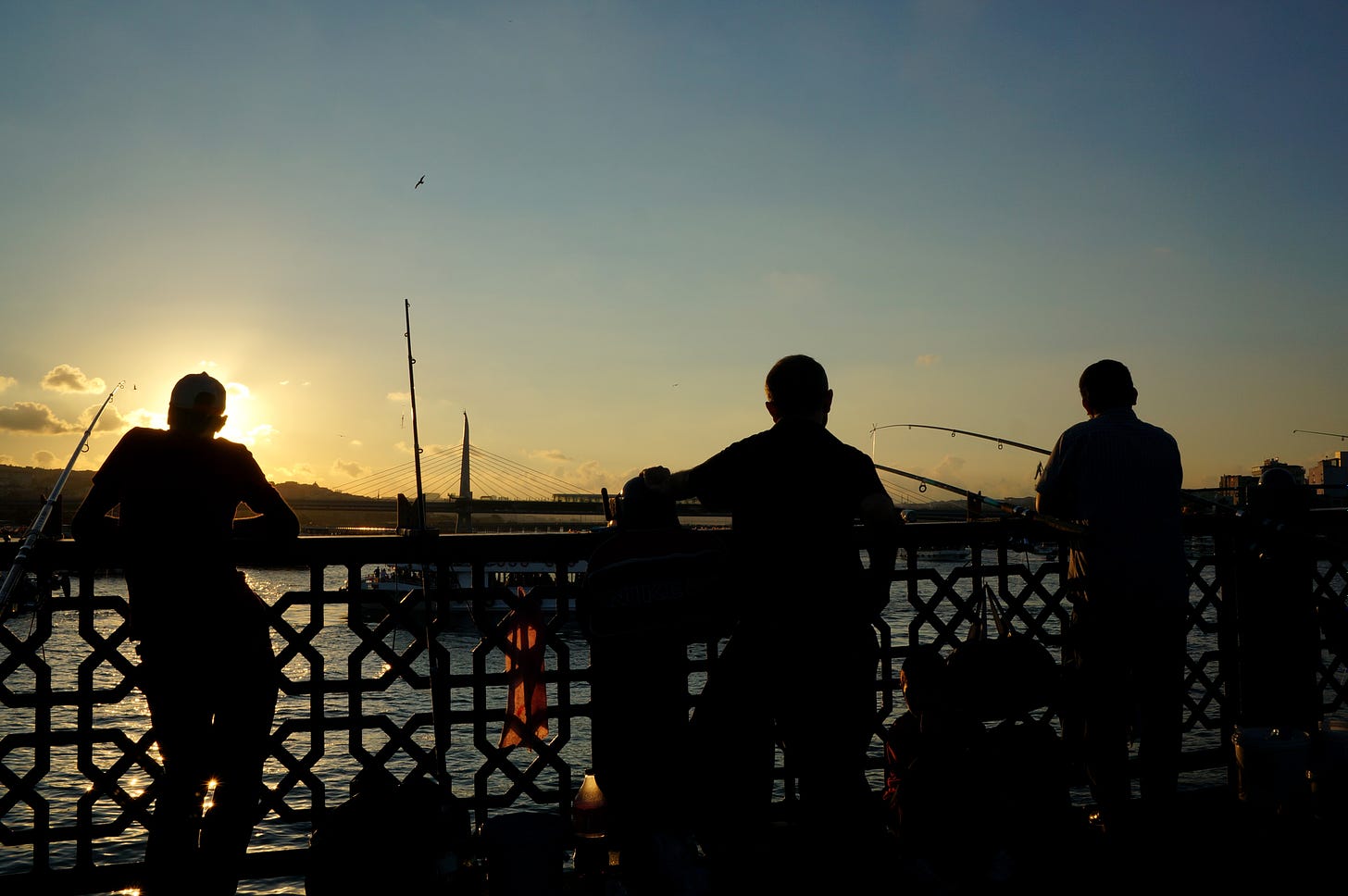
Is it a shame to have a favorite sunset? Shouldn’t it be tonight's or maybe tomorrow’s? I always want to believe the truest beauty is ahead of me. My favorite sunset is every night over the hill country of Bethlehem, beyond Na'halin village, dunking finally into the Mediterranean.
Every evening I shuffled my tired legs and dirty sandaled feet to the concrete wall overlooking the Wadi Fukin valley and plop down without the help of my burning quads, tired from a day of farm labor at the Nassar’s farm in Palestine. A stray dog or three would wander around my dangling feet like they were lying in wait too. We perk up our ears together as the call to prayer rang out from the mosques jutting up from the valley floor. I do not have to know the language to know the meaning. It plays five times a day, but the sunset call is the only one I observe. I sit and observe how the fading sun feels on my cheeks, how the music sounds foreign and familiar, how the dogs try to watch the sounds. I observe the spirit of the moment and a spirit in the moment, a meditation. While it is not my call, it is my worship. My home, my tent, is a few minutes’ walk up the dirt path from this favorite sunset.
Those places and moments are over a thousand miles from here now. Creation yells again when the sun goes down over the Sea of Marmara from a shore near the mouth of the Bosphorus, splitting West from East in Istanbul – home from not home. The hot sun set the backside of mosques ablaze as the minarets stand at attention until al-Iftar. The city is just awakening out of its sleepy daytime Ramadan fast. My belly is full of gelato we walked miles to taste, and new and old friends scatter across the wave-break rocks like pale crabs. We are all in multiple places at once as we stare across at the opposite shoreline to Old City Istanbul.
I have a bed to sleep in tonight but I miss the tent. I always seem to find a way to miss where I’ve been. Right about now the tent would be packed with commotion. Farm volunteers from Denmark, Holland, and Canada would be barreling in getting ready for dinner, gloves and boots stinking, the faint sound of pots and pans clanging in cacophony in Maher’s kitchen where he’s turning over maqlooba down the way. Dogs chattering to one another about the sunset or undomesticated canine neighbors.
Once it’s dark, intrusive headlamps on high beam trace across night vision. Stars begin to appear beyond the haze. Unruly car headlights on the valley floor pollute it back to an inky darkness. The camp will enjoy a busy dinnertime of the traditional Palestinian dish of upside down rice with aubergine, tomato, and chicken. I can retreat to the tent, escape the sights and smells, but the sounds of friendly laughter and late-night chores still find a way in through the canvas walls.
Drumming plastic jugs filled from empty at the communal potable water tank. The rare gravity showers spraying the tan filth off us into a draining swirl of collected gray water that would bring life to the new fruit trees. Everything has multiple uses here, even me. The nights I spend here matter because the presence of internationals on the farm has proven to prevent attacks on the land, the spontaneous demolition of mature vineyards and orchards by Israeli bulldozers under the cover of darkness. The trees I’m watering with recycled water symbolize hope for the uncertain future, because wise men plant trees now for posterity which cultivates hope beyond hope, and they’re planning to be around for the harvest. The things I’m seeing and learning will be what I fold into my story to take back to my community at home, my raw material to go and tell.
But I have not a care in the world now on this rock by the Turkish sea except the tightening in my core, the constriction of chest, when fireworks announce the end of the day's fast and famished locals and tourists rush to the food vendors at the water's edge for pide and balik ekmek. The sudden crack reopens a fresh wound torn open at Damascus Gate recently. I shove my body's memo deeper into my gut and my jaw and let it settle, like a wrinkled receipt pushed into the back corner of my desk drawer.
I am quiet for the remainder of tonight’s prayer call. My silence feels unfamiliar to me. This place feels unfamiliar to me, but in the way I have allowed unfamiliar to hold me in recent years. The soreness and vibrancy of my body is unfamiliar too. For the second time on this trip, I feel homesick and entirely at home. Not for the Galata hostel with its vibrance and hookah smoke. It has been three years since I have felt like I was home. Or maybe it’s been 25. I am here in search of connection, of showing up to learn from those in a stolen homeland. I am here to satisfy a hunger in my soul to challenge an easy life for one where I continually seek truth and beauty and justice, even the kind that comes with a cost. The poet Mary Oliver says, “we need beauty because it makes us ache to be worthy of it.” I long to exist perpetually in connection and beauty. I live that out by inviting presence and being entirely with a moment.
I have been alive for a while, if 25 years is a while, but never this awake.
I've traveled a lot too, and have moved now more than my fair share of times. I have been to places and back again and sometimes the place is different and I am the same, but most of the time the place is the same and I am the one who has changed, more awake to reality and the world and myself.
Home has fled my grasp in the last few transient years. What does it actually mean? What does and doesn't it feel like? Because I think I have forgotten. I sacrifice roots with every move and seasons of long-term travel. What it’s like to have roots is a fading memory, a setting sun over the horizon, causing me to squint and scramble to find a light, before it’s too late. And Palestinians are teaching me something new about home.
Maybe home is not just people, or a zip code, or a nationality. Maybe home is not just where others need to know you are from so they can judge if you are actually "one of them". Maybe home is time. Maybe it is when you know your neighbors. Maybe it is when your IDs and cards and licenses all have the same address that go on your taxes next year. Maybe home exists outside of time. Maybe it is when you stop feeling like a transplant, an impostor. Maybe it is when you plant a garden – plant anything – you will be around long enough to watch bloom.
Maybe it's when you see your home from a distance, really see it, and love it new again. Maybe home is not where the heart is. Maybe sometimes home is when the roots are. I know we can grow roots in a matter of months or years, but can we can grow roots in a matter of weeks? The irrigation of the salty sea sure has helped.
As the sun falls out of the sky, I think of beauty and love for this earth and her inhabitants, and whoever made the experience of sunsets so incredibly powerful and perfect and enjoyable. Maybe it was God. Or maybe it was me. Or these new and best friends around me, now lost in their own thoughts too.
If I could capture a moment and put it in a vial to wear around my neck, this would be the one.
I often wonder whether heaven could be a place we already know that would already feel like home when we arrived. If there’s a heaven, it should be as good as a sunset over Istanbul from coast, suspending continents and moments that can each take your breath away years later, just like the first time. If there is still room in the moment vial, I will add this too: dreams of a forever belonging and home, that we'll know when we get there.
We ferry back and stumble along the busy, crooked streets toward our hostel and find ourselves some imported hefeweissen in a corner mart, and we hang our feet over the edge of the fire escape staring up at the few stars we can pick out beyond the shroud of city lights and atmosphere. Deep in the velvet darkness, I spot the moon, who is slight waning crescent, a fingernail that reminds us Ramadan will end soon. As Mary Anne Radmacher once wrote, “I am not the same having seen the moon shine on the other side of the world.”
I love feeling so small in a city of 15 million, and in a crowd of four. And I love how we feel connected when we set our watches by the sun, our calendars and liturgy by the moon. We make up practices to call our own, like bottling a perfect sunset or finding the best gelato in a neighborhood, or how to drink and laugh on the fire escape without getting caught tonight.
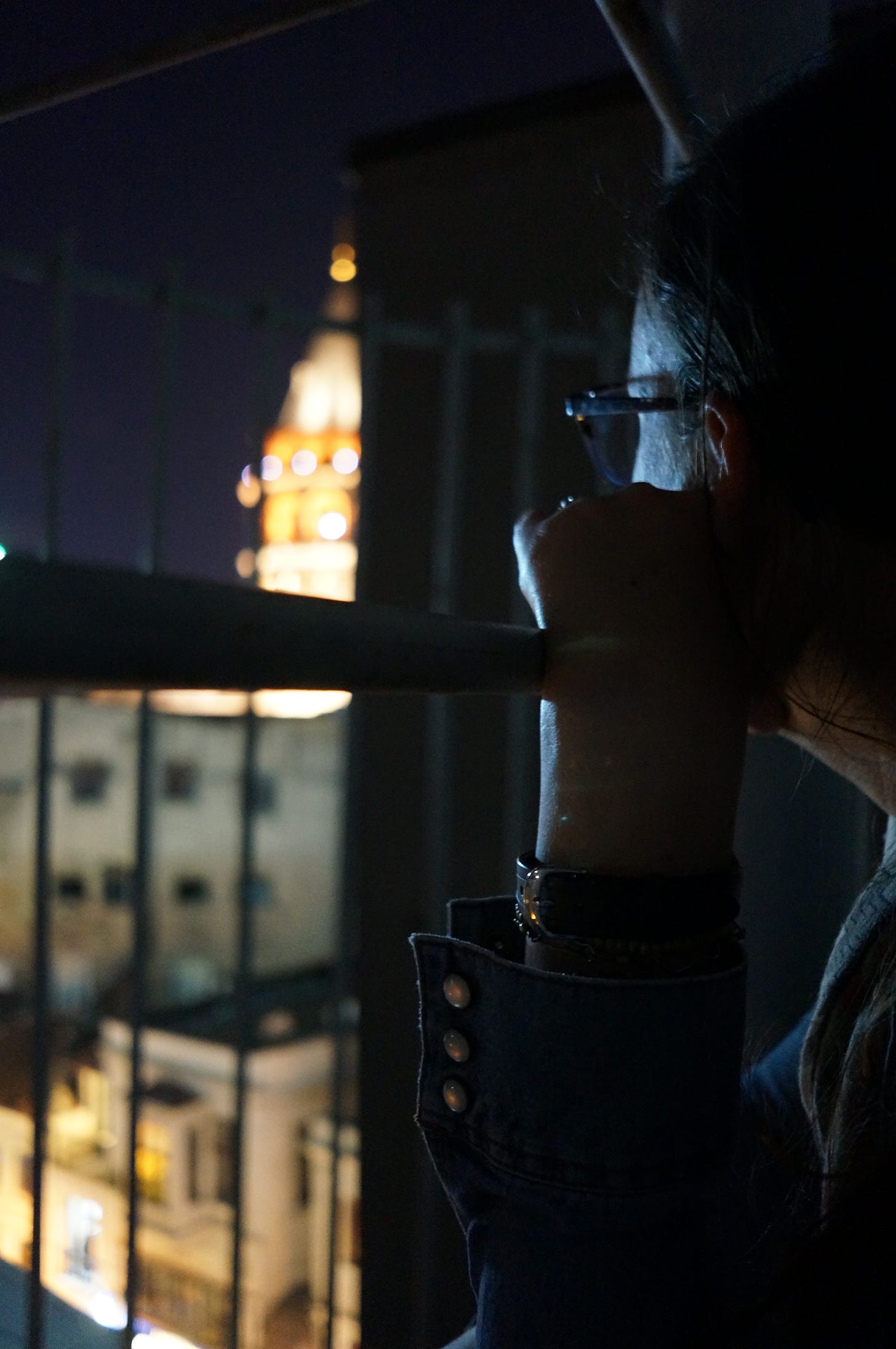
To dreams of free sunsets,
P.S. I’m purging some clothes and books to help make small progress toward my fundraising goal. Easy, fun way to support - take a look here!
The Nassar family goes to court again next week on May 15 for another hearing, which may decide their fate to keep their owned land or be forced off it, or may be yet another delay and obstacle to justice.


